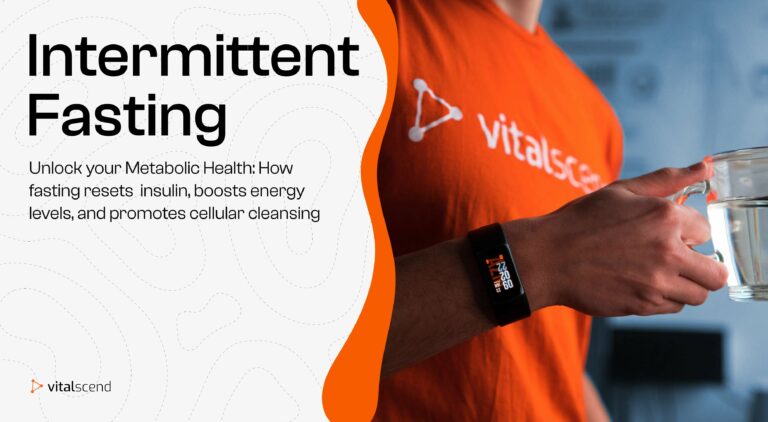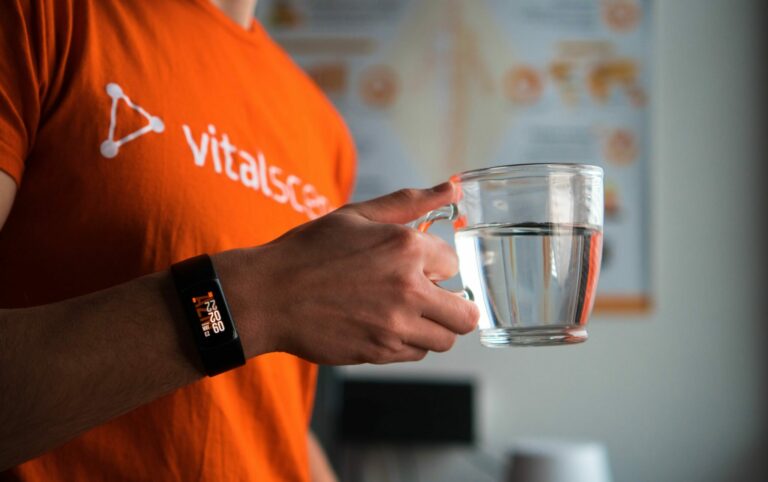Fasting vs Keto Benefits – Is Keto A Sugar Fasting Diet?
It seems as if many of the benefits related to metabolic health come just from cutting sugar. So the two most important diets, fasting vs keto diet are fighting for the number one spot. But is keto actually effective because it’s a sugar-fasting diet? Buckle up, we’ll find out.
Intermittent Fasting
Intermittent fasting or time-restricted feeding is the most popular model of fasting. 12:12 or 16:8 are the most frequently used ones, where we fast for 12, or 16 hours respectively, while eating our food in a window of 12, to 8 hours.
Fasting seems to provide many benefits associated with better glycemic control, weight loss, and improvements in cholesterol profile. It can also improve fasting glucose and insulin levels and aid in fat loss. (1)
(2) (3)
Fasting is also powerful due to its ability to stimulate autophagy, which helps with cellular repair, and protection, preventing neurodegeneration, reducing inflammation, and supporting cognition. (4)
Keto Diet
On the other hand, the Ketogenic diet is a low-carb high-fat diet, which allows only 5% of total calories to come from carbs. This is where your breakfast looks like eggs, bacon, and avocado while your dinner is zucchini noodles with meatballs and butter. No doughnuts allowed.
The keto diet seems quite effective in weight loss as well, plus it increases the burning of fat or fat oxidation and suppresses hunger hormones. Pretty cool if you ask me. (5) (6) (7)
On the cognitive side, it helps to improve focus, alertness and prevent overstimulation of the brain. It’s also potent for reducing inflammation, fighting stress, and supporting cognition. (8) (9) (10)
What Happens in Our Body During Fasting, or Keto?
As we deprive the body of glucose, it needs to tap into fat stores for fuel. During fasting or keto, the body is forced to start breaking down fatty acids, specifically triglycerides from adipose tissue, to convert them to ketones for energy.
Once ketones replace glucose for energy, this reduces the stimulus for storing glucose as glycogen, further increasing fat breakdown or oxidation. (11)
This can lead to better utilization of glucose, improved metabolic adaptation, and even shift the level of certain hunger hormones like Leptin and Adiponectin. Doing so improves our machinery for energy production, thus making us less susceptible to constant glucose re-fuel (think doughnuts) which causes most metabolic problems.

Similar Benefits Due to Sugar Fasting
The most important mechanism behind the benefits of both fasting and keto come from cutting sugar. Once we reduce sugar consumption or its frequency, we can give insulin a reset and improve glucose levels in the blood. This leads to a myriad of metabolic health benefits.
It is the catabolic nature of these diets that dominates, stimulating certain pathways in the body that lead to better repair and regeneration, thus improving longevity. It’s the self-eating or self-preservation that occurs, acting like an internal detox – removing dysfunctional cells and improving glucose metabolism.
Will fasting slow my metabolism?
As with keto, it’s true that fasting decreases energy expenditure. But we primarily want faster metabolism to lose weight, which fasting can effectively do. Conserving energy is a natural response when there’s less food ingested, but weight loss isn’t impaired.
Will fasting cause muscle loss?
Fasting will only cause muscle loss when too done for long, especially when there’s not sufficient protein intake. It takes around 24 hours of no food to break down amino acids from the muscle for energy, but that’s with insufficient protein. So, fasting for 48-72 hours without proteins can stimulate muscle catabolism.
What does fasting do to the body?
Fasting, by removing excess and frequent food teaches the body to clean itself of toxins, tap into fats for energy, and reset insulin levels. This can greatly affect weight loss, lower inflammation, and increase energy levels.
Research has shown that Keto, Caloric Restriction, or Fasting can be effective in:
- Reducing body weight and body fat in normal, overweight, and obese humans. (12) (13)
- Improving metabolic health markers, glycemic control, and insulin sensitivity. (14) (15)
- Improving cholesterol profile: lower LDL and triglycerides, higher HDL. (14) (16)
- Reducing fasting blood glucose, glycosylated hemoglobin, and insulin levels. (16) (13)
- Reducing HOMA-IR model of insulin assessment, improving β-cell function and insulin resistance. (17)
Most of the other benefits, like weight loss, brain health, and reduced inflammation mainly come due to improved utilization of glucose, better mitochondrial health, and optimized metabolism, thus creating more energy.
conclusion
Restricting sugar has proven effective for weight loss. It may also affect metabolic health in a positive way by improving glycemic control, insulin sensitivity, and cholesterol profile. All of these are extremely important in maintaining a healthy metabolism, increasing energy, and lowering inflammation.
Fasting is Partial Ketosis
The state of ketosis can be achieved both through fasting or eating a ketogenic diet. It’s a tricky one because how fast one gets into ketosis depends on many factors. The more you’ve trained your metabolism to shift between glucose to fats or ketones for energy, the faster you can achieve ketosis.
But the reason fasting is so efficient, even the shorter fasts, like 12 to 16 hours, is the achievement of partial ketosis. In partial ketosis, we’re not in full-blown ketosis, and our BHB levels aren’t skyrocketing in the blood. However, we are still actually getting most of the glucose-related, metabolism-enhancing, and inflammation-reducing benefits.
Pro Tip
Besides fasting and ketogenic diet, we can achieve partial ketosis or support the metabolic shift faster through exercise, coffee, nuts, green tea, and turmeric powder.
Importance of Metabolic Flexibility
When fasting or eating a keto diet, we are learning to switch between different fuels for energy. This improves our so-called metabolic flexibility, which translates the better metabolic health.
It is the adaptive response of the body from eating – low carb to eating high carb again, that shifts between catabolism and anabolism. Training the brain to adapt through learning protects it from cognitive decline. Training the body to switch between fuels improves metabolism and our utilization of glucose.
Fasting does this by activating different catabolic pathways in the body, like AMPK -activated protein kinase or Sirtuin1 – linked to longevity. These stimulate autophagy, cellular repair and reduce inflammation. (18)
Weight Loss
When it comes to fat loss, it’s about calories in vs calories out. Both fasting and keto seem to be quite effective as traditional dieting or caloric restriction. Fasting seems to be effective as it makes it easier to be in a deficit of around 20%.
In some cases, Keto may drop weight quicker, but it’s due to higher water loss. However, this isn’t just about total weight loss. It’s about improving glucose metabolism, increasing energy, mitochondria function, and reducing inflammation that enhances our fat loss. Both fasting and keto are effective in this.
Research on fasting showed its effectiveness in weight loss:
- In 27 fasting trials weight loss of 0.8% to 13% occurred. (19)
- In 9 out of 11 studies, fasting showed equivalent weight loss results to caloric restriction. (20)
- The 14 hours of fasting was more effective compared to its 12 hours, leading to -8.5%, while the latter led to -7.1%. weight loss. (21)
On the other hand, the Magic of keto is getting you into full-blown ketosis, which specializes in burning fat. This improves mitochondrial biogenesis, leaving you with more stable energy and less oxidative damage. But what does that mean for weight loss?
- In obese patients, keto significantly reduced body mass and body weight, plus improved cholesterol profile. (22)
- The improved ability to tap into fat stores helps with burning fat and improves metabolic flexibility. (23)
- After 1 year, studies show keto is more effective at weight loss, leading to a weight loss superior by 2 kg. The weight loss which peaks at 5 months is hard to sustain. (24)
conclusion
Both keto and fasting work on a similar mechanism to produce weight loss. It’s caloric restriction combined with enhanced fat oxidation. This leads to better metabolic health and flexibility, important for sustaining weight loss and producing energy.

Reducing Inflammation
High glycemic variability is detrimental to metabolic health and increases inflammation. By reducing the amount or frequency of glucose intake, we can stabilize glycemic variability.
Fasting and keto are effective dietary approaches to reduce inflammation. Switching to fat for fuel can reduce the production of free radicals, thus lowering oxidative damage.
109 subjects during a prolonged 10-day fasting period improved antioxidant capacity and reduced lipid peroxidation. (25) The combination of exercise and fasting exerts protective effects against oxidative stress and inflammation. (26)
Inflammation is not to be feared. All physiological processes create free radicals. It’s when inflammation and oxidative stress increase chronically – that causes DNA damage and faster aging. By attenuating inflammation, we can potentially live longer and healthier lives.
Both Ramadan and intermittent fasting show improvement in metabolic profiles and inflammation by reducing proinflammatory cytokines (IL-6) and increasing anti-inflammatory ones (IL-10). (27) (28)
In Ketosis the levels of Beta-hydroxybutyrate in the blood increase. As such, BHB stimulates the antioxidant systems to fight against oxidative stress. It also improves mitochondrial respiration, thus enhancing our energy production on a cellular level. (29) (30) (31)
conclusion
In terms of inflammation and exhibiting stress, both keto and fasting can be beneficial. As they both force in ketosis, when we use ketones for energy, we create fewer free radicals.

Brain Health & Cognition
It’s time to ask. Will you be smarter on the keto diet, or just as a regular faster? It seems that both are pretty effective at increasing alertness. Miracles happen when the brain shifts to fat for fuel. Less free radicals are created, the brain has an alternative source of energy, plus fats power up different aspects of cognition like alertness, memory, and focus.
It seems that by reducing glucose, the brain can hit the reset button and clear up. Fasting provides neuroprotective benefits, increases neurotrophic factors, and reduces inflammation. (32) (33) (34) (35)
With cognitive decline, it’s usually the brain ineffectiveness and utilizing glucose that causes problems. Switching to ketones can improve learning and memory tests and even decrease plaque buildup. (36)
Increasing mitochondrial biogenesis leads to better energy efficiency and fewer metabolic deficits. By increasing BDNF, keto and fasting can enhance the brain’s plasticity, making it more adaptable. (37)
(38)
conclusion
The brain on ketones is less inflamed, more alert, and efficient at energy production. It seems that both fasting and keto can increase BDNF, hence improving learning and neural plasticity. While fasting has the added benefit of autophagy, sort of a cellular cleansing for the brain, ketones may provide an additional benefit during a cognitive decline.
Fasting vs Keto Benefits
Metabolic Health
When looking at metabolic health, factors like cholesterol, stress, and glucose levels are very important. Research on both the ketogenic diet and fasting shows beneficial effects on metabolic health:
- Fasting can improve cholesterol profile by reducing LDL cholesterol and triglycerides while increasing HDL, the good cholesterol. (39)
- Fasting also improves insulin sensitivity and reduces blood glucose and insulin levels. (40)
- Keto diets were effective in improving glucose control, especially in obesity or overweight population. Keto may also lower triglycerides, glycated hemoglobin, and the HOMA-IR model. (41)
- Ketosis can improve the brain’s metabolism, enhancing the conversion of glutamate to glutamine. This means a less hyperactive brain and better neurotransmitter balance. (42)
conclusion
Both the ketogenic diet and fasting work on the same mechanism to improve metabolic health. The effect takes place with the less frequent load of glucose. This leads to better insulin sensitivity, glycemic variability, and better utilization of glucose.
The Biggest Difference
(fasting is more efficient at cellular repair, autophagy, regeneration, catabolic pathways)
Probably the biggest pro of fasting that is distinct from keto is the ability to stimulate autophagy. When you ingest no calories, certain catabolic pathways like AMPK and SIRT1 are stimulated.
Fasting and caloric restriction is the most potent way to stimulate autophagy. That’s a process of self-eating where the body gets rid of dysfunctional cells and extra junk. It’s like an internal detox. (43)
Fortunately, this internal detox comes with a myriad of benefits for brain health, (44) inflammation, metabolic health, (45) glycemic control, (46) fat loss, and many more. Autophagy preserves healthy cells, reduces DNA and oxidative damage – thus leading to longevity, vitality, and anti-aging. (47) (48) Sounds cool, doesn’t it?
Which One is Better?
Putting these two dieting approaches in a box and comparing them to determine which one is better, is not the right idea. They’re both great and excel at specific things, but are pretty similar.
Both diets function on a similar mechanism, which is reducing the frequency and amount of glucose ingestion. Consequently, glucose variability and insulin sensitivity are improved, leading to a myriad of metabolic health benefits.
It’s about learning to intermittently use both fasting and keto in the catabolic phases while loading on carbohydrates in the anabolic phases. The keto diet is more of a “reset” approach where you teach your body to hit the metabolic switch to fats. Doing so improves metabolic flexibility and potentiates the benefits of fasting as well.
In terms of practicality, we’ll have to give Fasting the crown. It’s much easier to fast for 16 hours and eat for 8 than doing a 5% carbohydrate diet. We view intermittent fasting as more of a daily habitual thing, while keto is done occasionally on a monthly or yearly basis.
Conclusion
- Fasting and the Keto diet are effective approaches that work by a similar mechanism. By reducing the amount and frequency of glucose ingestion – tons of good things for metabolic health happen.
- Both can improve glycemic control, insulin sensitivity, glucose utilization, and reduce glycemic variability. Along with improved cholesterol profile and inflammatory markers, fasting and keto can lead to better metabolic health and fat loss.
- Fasting and keto train metabolic flexibility. It’s the body’s ability to switch from glucose to fats, for more efficient energy production. This ensures stable energy, higher efficiency, and better glucose utilization later.
- Fasting for 12-16 hours is more practical and easier to adhere to than keto for most. It also is superior in stimulating autophagy which is key for longevity, anti-aging, and cellular repair.
- The Keto diet is more of a reset diet, training the body to become a fat-burning machine. Ketones provide an alternative source of energy for the brain, which can also improve neuroplasticity, BDNF levels, learning, and support memory.








